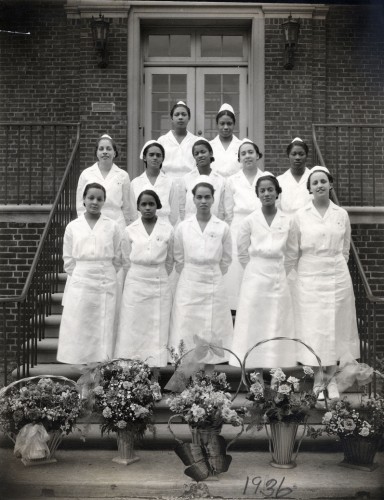Civil War nurses were a vital part of the American Civil War as they provided crucial medical attention to soldiers from both the Union and Confederate armies. Many of these nurses were volunteers and represented a diverse group of individuals, including women from various organisations, members of religious groups, and even former slaves. Despite the hazardous conditions and challenges that came with the role, these nurses demonstrated remarkable bravery, compassion, and devotion to their patients.
Their tireless efforts and selflessness in the face of danger helped revolutionise the field of nursing, setting a high standard for the profession. They worked tirelessly to care for the wounded and sick soldiers, often under extreme conditions. Their unwavering dedication and commitment to their patients helped shape the future of nursing and paved the way for modern-day nursing practices. Their contributions to the war effort and to the field of nursing will forever be remembered and appreciated.
A brief overview of the American Civil War
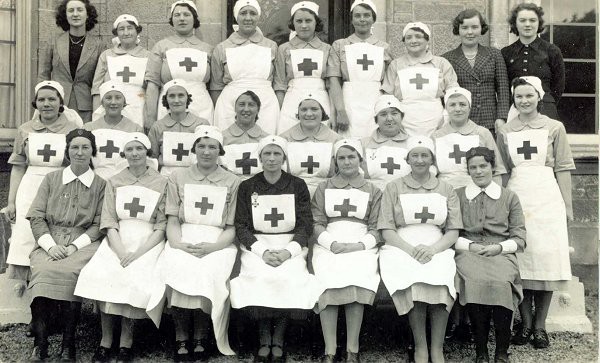
The American Civil War was a significant event in American history that lasted from 1861 to 1865. It was a conflict between the northern states, known as the Union, and 11 southern states that had seceded from the Union and formed the Confederacy. At the heart of the conflict was the issue of slavery and differing views on the balance of power between the states and the federal government.
The Union emerged victorious after four years of intense fighting and devastating casualties, estimated at around 620,000. The victory led to the end of slavery and the abolition of the slave trade in the United States. This was a turning point in American history and had a profound impact on American society, politics, and identity. The Civil War remains an important part of American history, influencing the nation’s politics and society to this day.
Conditions of Soldiers
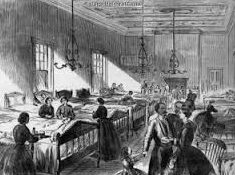
During the American Civil War, soldiers on both sides of the conflict faced difficult and often life-threatening conditions. Some of the most challenging conditions included:
- Disease: Disease was a major cause of death during the Civil War. Poor sanitation and crowded conditions in camps and hospitals led to outbreaks of deadly diseases such as dysentery, typhoid fever, and pneumonia.
- Wounds and injuries: Battles were brutal and resulted in many casualties. Soldiers suffered from a wide range of wounds and injuries, including gunshot wounds, amputations, and fractures.
- Malnutrition: Soldiers were often poorly fed and had limited access to nutritious food. This resulted in widespread malnutrition and weakened soldiers, making them more susceptible to disease.
- Extreme weather: Soldiers had to endure harsh weather conditions, including extreme heat, cold, rain, and snow. This added to the already difficult conditions they faced.
- Mental stress: The stress of combat, death, and injury took a heavy toll on soldiers’ mental health. Many soldiers suffered from conditions such as post-traumatic stress disorder (PTSD) and depression.
Despite these difficult conditions, soldiers displayed remarkable resilience and bravery in the face of adversity. Their sacrifices and commitment to their cause helped shape the future of the nation.
Medical Attention and Facilities available
During the American Civil War, medical attention and facilities were limited and inadequate for the number of casualties. Some of the challenges faced included:
- Lack of trained medical personnel: There was a shortage of trained medical personnel, including doctors, nurses, and surgeons. Many were called away to serve in the military, leaving civilians with limited access to medical care.
- Inadequate supplies: Medical supplies were often limited and of poor quality. There was a shortage of essential items such as medicine, bandages, and anesthesia.
- Overcrowded hospitals: Hospitals were often overcrowded and lacked proper ventilation, leading to the spread of disease.
- Improper treatment: Medical treatment was often inadequate and based on outdated practices. This led to many unnecessary deaths and infections.
Despite these challenges, significant efforts were made to improve medical care for soldiers during the war. The introduction of field hospitals and the use of trains as mobile hospitals helped to provide better care for wounded soldiers. The bravery and dedication of nurses, such as the ones mentioned in your previous question, played a crucial role in improving the conditions and treatment of soldiers. The Civil War was a major turning point in the history of medicine and led to the development of modern surgical techniques and the advancement of nursing practices.

Role of Nurses
The role of Civil War nurses during the American Civil War was of utmost importance in providing medical care to the wounded and sick soldiers from both sides of the conflict. These nurses took on a number of critical responsibilities that helped to revolutionize the field of nursing and improve medical care for soldiers.
One of the primary responsibilities of Civil War nurses was to provide direct medical care to soldiers. This included dressing wounds, administering medications, and monitoring patients. Despite the long hours and challenging conditions, these nurses showed immense dedication and worked tirelessly to care for the soldiers.
Another important responsibility of Civil War nurses was to maintain the cleanliness and hygiene of hospitals and camps. This was essential in preventing the spread of disease and reducing the risk of infections. By ensuring that the facilities were clean and hygienic, nurses helped to improve the health of soldiers and prevent the spread of infectious diseases.
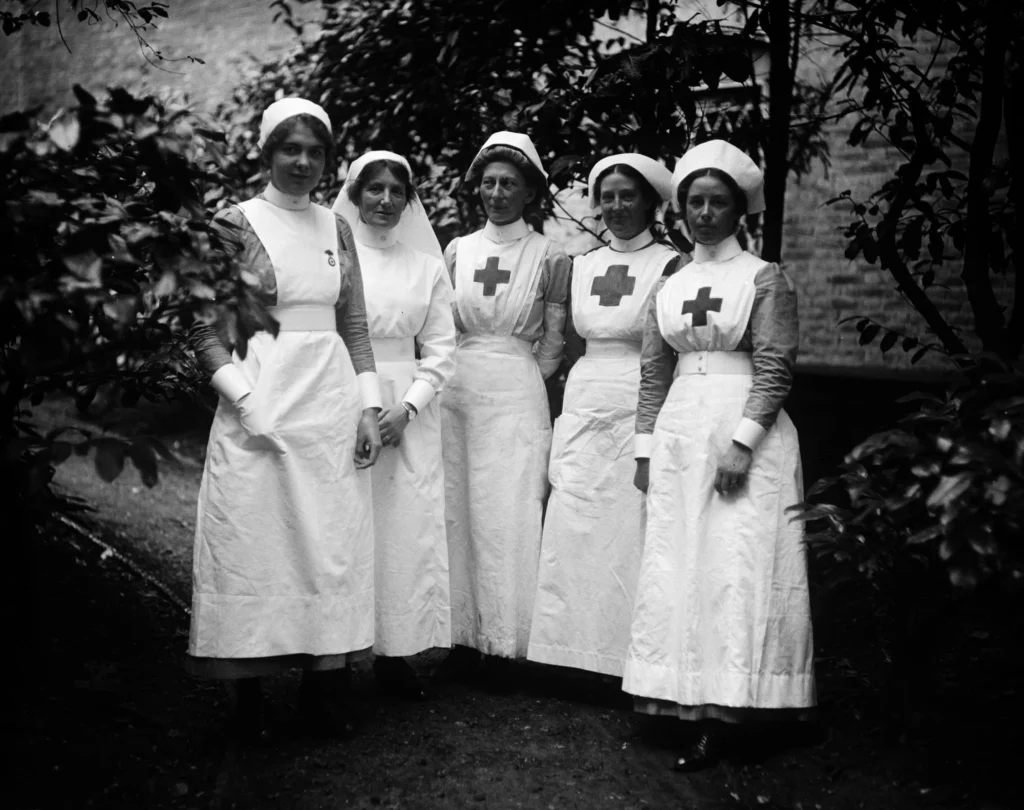
In addition to providing medical care, Civil War nurses also supported the emotional and psychological needs of soldiers. They often served as the only source of comfort for soldiers and provided a listening ear and words of encouragement, helping to boost the morale of the soldiers.
Due to limited supplies, Civil War nurses often had to improvise medical equipment and supplies. They used their resourcefulness and creativity to provide better care for soldiers, using tablecloths as bandages and tearing up sheets to make dressings.
Finally, Civil War nurses also faced opposition and discrimination from the military and civilians. Despite this, they continued to advocate for the rights of soldiers and worked tirelessly to improve the conditions in which they were treated. Their bravery, compassion, and dedication helped to revolutionize the field of nursing and improve medical care for soldiers.
Overall, the role of Civil War nurses was challenging and often dangerous, but their contributions to the war effort were instrumental in paving the way for modern-day nursing practices. Their bravery, compassion, and dedication helped to improve medical care for soldiers and had lasting impacts on American society, politics, and identity.
Statistics regarding Nurses
Here are some statistics related to Civil War nurses:
- Number of nurses: It is estimated that between 2,000 to 4,000 women served as nurses during the American Civil War.
- Volunteer nurses: The majority of Civil War nurses were volunteers, including women’s organizations, religious groups, and even former slaves.
- Demands on nurses: Nurses worked long hours and often under difficult conditions, including limited supplies and resources, as well as the risk of disease and infection.
- Recognition for their service: Despite their critical role in providing medical care to soldiers, Civil War nurses were not officially recognized as members of the military until several decades after the war.
- Impact on nursing profession: The bravery, compassion, and dedication of Civil War nurses helped to revolutionize the field of nursing and paved the way for modern-day nursing practices.
These statistics highlight the significant contributions of Civil War nurses to the war effort and their impact on the development of the nursing profession.
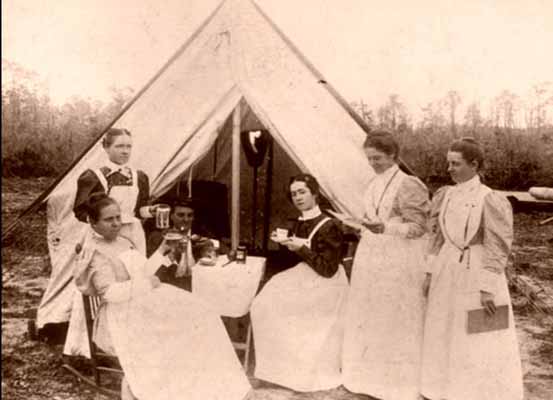
Some of the Most Famous American Civil War Nurses
Here are some of the most famous American Civil War nurses:
- Clara Barton: She is known as the “Angel of the Battlefield” and is considered one of the most important figures in the history of nursing. She founded the American Red Cross and served as a nurse on the front lines of several Civil War battles.
- Dorothea Dix: She was a leader in the movement to improve the treatment of the mentally ill and served as the superintendent of army nurses during the Civil War.
- Mary Ann Bickerdyke: She was a volunteer nurse who served with the Union army and was known for her tireless efforts to improve the conditions of soldiers and hospitals.
- Louisa May Alcott: She was a writer and nurse who served in the Union army during the Civil War. Her experiences as a nurse inspired her to write the novel “Hospital Sketches.”
- Phoebe Pember: She was a Confederate nurse who served in several hospitals during the Civil War and was known for her compassion and dedication to the soldiers she treated.
These nurses are remembered for their bravery, compassion, and dedication in providing medical care to soldiers during the American Civil War. Their contributions have had a lasting impact on the nursing profession and the treatment of wounded and sick soldiers.
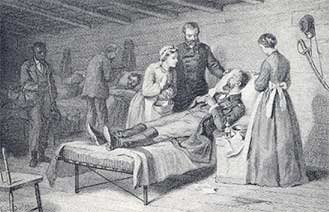
Some of the Most Emotional Tales of Civil War Nurses
Here are some of the most emotional tales of Civil War nurses:
- The story of Mary Phinney: Mary was a nurse who served at the Union army hospital in Washington D.C. She was known for her kindness and compassion towards the soldiers, often staying by their side until they recovered or passed away. One soldier she cared for, a Confederate soldier, died in her arms after she promised to write a letter to his family. She kept her promise and wrote a letter to the soldier’s mother, telling her about her son’s bravery and how he died.
- The story of Jane Stuart Woolsey: Jane was a nurse who served in the Confederate army during the Civil War. She was known for her kindness and compassion towards the soldiers and for her bravery in the face of danger. She once saved the lives of several soldiers by carrying them to safety during a battle, despite being wounded herself.
- The story of Mary Todd Lincoln: Mary, the wife of President Abraham Lincoln, was deeply involved in the Civil War effort. She visited wounded soldiers in hospitals and often brought them gifts and supplies. She was known for her kindness and compassion towards the soldiers and for her efforts to improve their care.
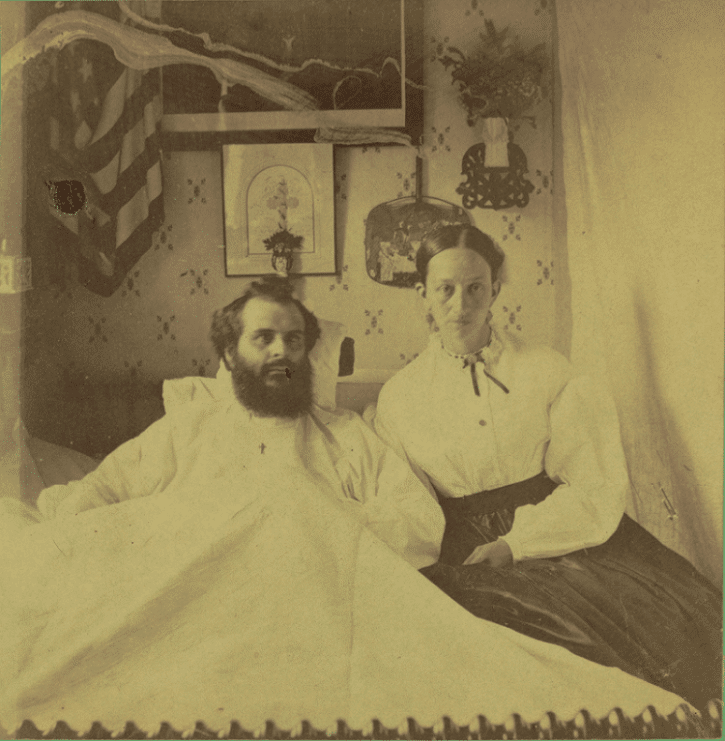
These tales of Civil War nurses highlight their bravery, compassion, and dedication in providing medical care to soldiers during the conflict. Despite the dangerous and challenging conditions, they showed immense courage and selflessness in their care for the soldiers, often putting their own lives at risk.
Conclusion
The American Civil War was a pivotal moment in American history, lasting from 1861 to 1865 and resulting in approximately 620,000 casualties. The conflict was primarily driven by conflicting views on slavery and states’ rights, with the Union ultimately emerging victorious and leading to the end of slavery.
The role of Civil War nurses was critical in providing medical care to wounded and sick soldiers on both sides of the conflict. Despite the dangerous and challenging conditions, these nurses showed immense bravery, compassion, and dedication in their care for the soldiers. They were responsible for providing direct medical care, maintaining hygiene, supporting soldiers’ emotional needs, improvising medical equipment, and advocating for soldiers’ rights.
Civil War nurses came from diverse backgrounds, including women’s organizations, religious groups, and former slaves. Their contributions helped to revolutionize the field of nursing and paved the way for modern-day nursing practices. Their bravery and dedication in the face of adversity serves as an inspiration to all and their sacrifices will always be remembered.
In conclusion, the American Civil War and the role of Civil War nurses represent a significant chapter in American history. The contributions of these nurses helped to improve medical care for soldiers and left a lasting impact on society, politics, and identity. Their sacrifices and dedication serve as a testament to the power of compassion and the human spirit.

